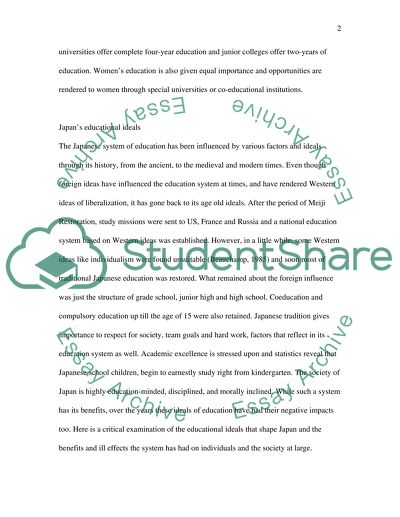Cite this document
(“Japanese Education System Essay Example | Topics and Well Written Essays - 2000 words”, n.d.)
Retrieved from https://studentshare.org/education/1505204-japanese-education-system
Retrieved from https://studentshare.org/education/1505204-japanese-education-system
(Japanese Education System Essay Example | Topics and Well Written Essays - 2000 Words)
https://studentshare.org/education/1505204-japanese-education-system.
https://studentshare.org/education/1505204-japanese-education-system.
“Japanese Education System Essay Example | Topics and Well Written Essays - 2000 Words”, n.d. https://studentshare.org/education/1505204-japanese-education-system.


